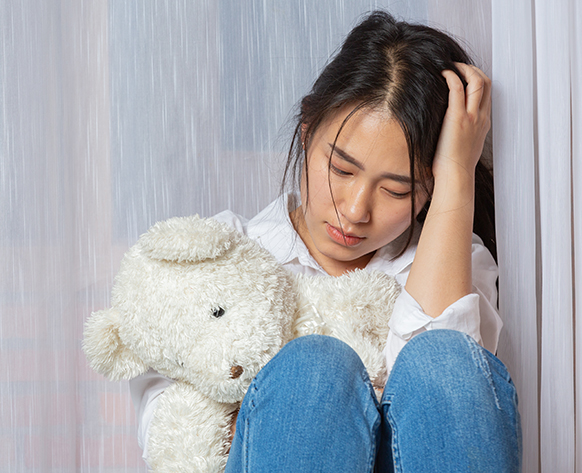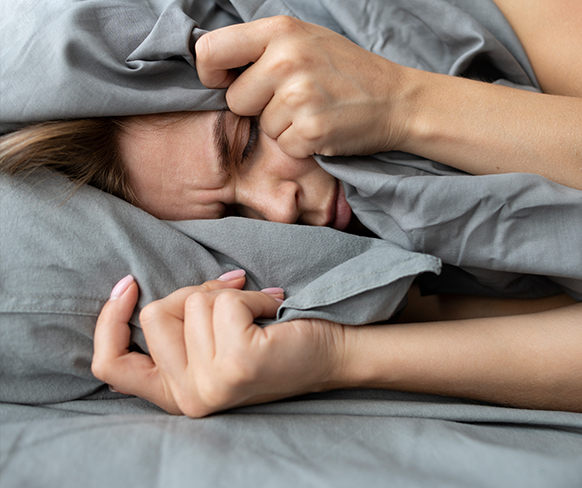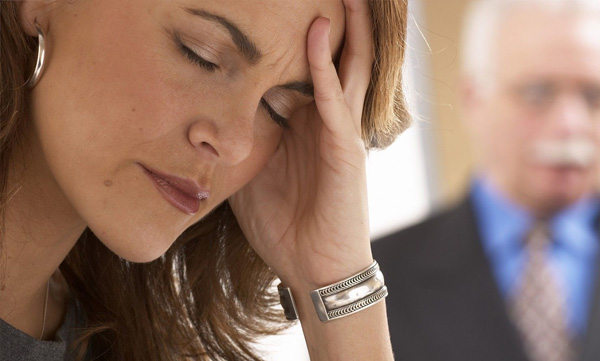How many us have suffered from IBS or some form of constipation or diarrhea at some point of time in our life? Too many, I am sure … more


Mental wellbeing is connected to your mental health. Mental wellbeing means wellness of your mind, a mind that is free from lifestyle related depression, anxiety, and stress. Here’s how we define these conditions.
Depression is usually associated with feeling that arises due to bad mood, low energy, loss of interest or low self-esteem. We need to understand that depression is not just a feeling, it is a serious condition which can be treated with or without clinical help.
Formally one can define depression as major depressive disorder which is characterized by persistent sad mood, hopelessness, and loss of ability to perform day-today functions with zeal and interest. It may affect a person’s thinking, memory, eating, or sleeping. Consider the fact that sadness and feeling low can be temporary, but depression will return in phases, if not treated correctly. If ignored, depression may make a person self-destructive, self-damaging; both physically and mentally.
Anxiety is closely related to depression. They may sound the same to a layman because both conditions often co-exist or follow one after the other. It is not uncommon to call someone suffering from anxiety as depressed. Where depression is hopelessness, anxiety is defined as a state of excessive worry, fear, restlessness, or uneasiness. An anxious person worries needlessly about present and future. They uncontrollably and continuously have racing thoughts about matters that may or may not be of actual concern.
Often, people suffering from anxiety start avoiding situations where they feel fearful or uneasy. This eventually leads to social isolation, in turn, denying them chances of pleasurable moments and onset of persistent bad mood. Anxiety then may lead to depression. For some it may happen the other way round, as the feeling of low self-esteem or energy may cut them off from society and develop into anxiety or unwanted fear of going out.
Stress is the feeling of being overwhelmed by life’s routine tasks due to mental or emotional pressure. Every individual’s response to stress is unique but it usually threatens their sense of self or starts with feeling that they have little control over life situations.
In turn, every individual’s way of dealing with stress also differs. Research shows that genetics, early life events, personality and socio-economic circumstances also impact our ability to cope with stress.
Stress also affects our biology. When we feel stressed, our body produces stress hormones that trigger a fight or flight response, activating our immune system. Sometimes the immune system’s response is helpful, for example, when the stress is momentary. As soon as the stressful event is over, we start feeling relieved. However, lasting or too much stress can cause negative effects and leave us physically and mentally incapacitated.
To fight depression and anxiety, one needs to be vigilant when they start feeling low. Not all cases of feeling low lead to diagnosis of clinical depression or anxiety but avoiding the symptoms long enough can lead to severe cases.
Diagnosis of clinical stress and anxiety is done by checking your family history and asking you to fill a questionnaire. Certain lifestyle disorders, diseases, and medications can also contribute to the feeling of depression and anxiety. While there’s no clinical test that can determine if you are depressed or anxious, doctors can perform a series of pathological tests to monitor your hormonal functioning and reach a diagnosis.
Stress too is subjective and not measurable with tests. Only the person feeling stressed can determine its presence or severity. The short-term and long-term effects of stress can lead to certain physical, emotional, and behavioral symptoms.
Depression, anxiety, and stress can also be identified at home by self, family members, or friends. Look out for physical and psychological symptoms to determine if you or your loved one are showing signs of mental disconnect.
Our nervous system controls our heart rate, breathing, vision changes and other motor functions. When you are mentally depressed, anxious, or stressed, the immune response tries automatic stress management through a hormonal response. However, long-term mental pressure can wear and tear our body’s immune response and lead to several physical symptoms as well. When suffering from chronic depression, anxiety, or stress caused by lifestyle problems, you might experience frequent bouts of,

The first and foremost impact of depression, anxiety, and stress happens on a person’s mental wellbeing. However, because these problems cannot be quantified without proper diagnosis by a health and wellness coach, the emotional symptoms of depression, anxiety, and stress are often hard to capture. But there are some emotional responses you can watch out for when feeling mentally overwhelmed.

In time, depression, anxiety, and stress can cause your behavior and personality to change, for the worse. Like the emotional symptoms, self-diagnosis of behavioral symptoms of depression, anxiety, and stress is also very difficult as they happen slowly over a period. However, these symptoms are generally noticed by people close to us. If your loved ones are constantly asking after your health and wellbeing, perhaps they are noticing something you do not or cannot. Here are some of the behavioral symptoms people experience while coping with depression, anxiety, and stress.

Fighting with depression, anxiety, and stress may be difficult but not impossible. These lifestyle disorders drain our positivity and energy but there are numerous ways to deal with them. You just have to identify the root cause and begin the journey of self-understanding.
If you are feeling depressed, anxious, or stressed, the first step is to acknowledge the problem and reach out to someone you trust – your spouse, a friend or relative, or a medical professional. Having someone by your side helps boost morale, keep up with the treatment, and avoid the feeling of being alone.
While taking help, speaking out and sharing is difficult because you might feel ashamed but once done it gives you the support and power to fight. If you get stuck or want to feel comfortable with your partner, take a walk with them, spend time in a cafe, open up slowly, do an activity together to feel more comfortable while sharing your thoughts.
Depression, anxiety, and stress, collectively and individually create a series of thoughts that are confusing, chaotic, and unhealthy. Such thoughts tend to resonate and stay stuck in your mind. Meditation helps you connect with your inner self and create an understanding with your heart and mind. Meditating regularly when feeling depressed, anxious, or stressed can release negative thoughts and boost confidence and good vibes. It may also help to realign chaotic thoughts and understand the source of your repressive thoughts and then allow you to remedy the root cause.
When your mental wellbeing is already at stake due to depression, anxiety, and stress don’t let your body to be affected by the same. As discussed, physical symptoms of depression, anxiety, and stress can hurt your activity levels or ruin your physical health by triggering stress eating. So, when feeling depressed, anxious, or stressed, focus on healthy food and try to bring down or totally cut down the consumption of mood controlling ingredients like alcohol and caffeine. Also, slow down on carbs and sugar, instead consume foods rich in Vitamin B and Omega-3 which are helpful in regulating mood swings.
One may feel that they have lost interest in doing the things they once enjoyed doing. Just push yourself a little to get out of that gloomy space and you may start feeling better. Try things that bring you joy and trigger good memories. The results might not be so significant at the beginning but with time you can make behavioral adjustments that will help uplift your spirits.
Sunlight brings joy to people, not just metaphorically but literally. Sunlight induces release of serotonin which help steady the mood. With the onset of winters, a lot of people with depression tend to feel blue and trigger depressive phase more often. Try to sit in the morning sun to fill your quota of warmth and light for the day. Make it a practice, take a walk in the sun, or spend quality time in a park nearby.
Nothing works better than a breath of fresh air or a few rounds in the gym when you are feeling low. Physical exercise releases endorphins that boost your mood and motivate you to fight difficulties. So, start building a physical routine to help your physical and emotional wellbeing.
Take some time off work and life chores to do what you love, such as practicing singing, dancing, or any other hobbies you have. Listen to the music you love or cook your favorite dishes or go on a long drive. Mend your relationships or catch up with friends and family. All these things will help strike a balance between your responsibility to others and responsibility to yourself, which is vital in reducing depression, anxiety, and stress.
Resting your body is as important as resting your mind. Limit your caffeine intake and avoid screen-time before bed to cultivate healthy sleeping habits. Some light reading or writing before going to bed will also ease your mind and help in sleeping better.
Although most cultures have made mental wellbeing consultations a social taboo, the reality if rather different. Only a professional can understand your state of mental wellbeing and help. The more you stay back in the dark, the more it will affect your overall health and happiness. Know that depression, anxiety, and stress are diseases that can be treated just like any other disease. Here is how a qualified health and wellness coach can help with your depression, anxiety, and stress.




How many us have suffered from IBS or some form of constipation or diarrhea at some point of time in our life? Too many, I am sure … more

“Sometimes the terms stress and crisis are used interchangeably even though stress is actually a temporary or prolonged condition that requires people … more

Over the last few months as I sat in class, I often questioned how most of the eastern healing modalities practiced today really work. I have experienced some … more

Good health implies that your mind and body are in perfect harmony and healthy. The slightest misbalance in either of the two can lead to a variety … more

It is known to almost each one of us that stress has an impact on the overall health and well-being, yet most of us fail to take necessary action to prevent it … more

When you’re stressed out, the foods that you’re turning to are most likely going to be traditional ‘comfort’ foods – think big meals, take-out, fatty foods, … more